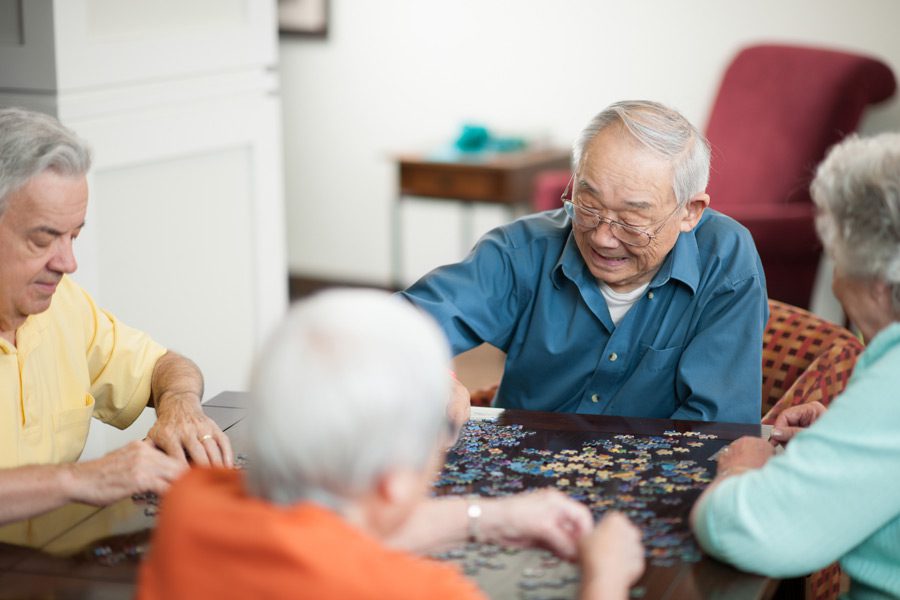An estimated 14 million adults are projected to have dementia by 2060. The condition is not a normal part of aging, but some individuals may be at increased risk. Memory loss can be challenging and devastating for patients and their loved ones, but there are some steps you can begin taking early to help reduce the risks.
How Dementia Develops
Memory is located in different areas of the brain and some regions are more susceptible to change with older age. Because of this, aging adults have a harder time recalling things freely without a cue and experience absentmindedness.
Though scientists are still learning what causes age-related memory loss and dementia, we know that the hippocampus and frontal lobe, key regions for memory function, shrink with age. Changes can also occur in the white matter, which connects regions of the brain and transmits messages between them.
The brain and memory function are also affected by physical, neurological, and mental health. Prolonged stress, fatigue, mood, and health conditions like Type 2 diabetes, stroke, and depression can impact cognitive function. Smoking, high blood pressure, and poor cardiovascular health also contribute to memory problems later in life.
Though occasional, minor lapses in memory are normal. Serious problems like forgetting the meaning of common words; losing items and then finding them in odd places; suspicion of your friends and family; or forgetfulness that impacts daily life may be signs of dementia and necessitate a medical appointment.

To help reduce the likelihood of developing dementia, adults can take steps to stay physically and mentally healthy.
Eat a healthy diet.
Eat plenty of vegetables, fish, eggs, legumes (lentils, beans), nuts, olive oil, and fruits on a daily basis, and limit red meat, alcohol, and sugar. Avoid processed and packaged food.
Exercise regularly.
It’s important to exercise at least five days a week, for 30 minutes a day. If it’s been a while since you last exercised, start by taking walks. You could also talk to your doctor about other forms of exercise that might be beneficial for you.

Socialize.
Spending time socializing with others is good for brain health. Positive interaction with others stimulates the brain and helps maintain mental acuity. Social engagement also reduces the risk of anxiety, stress, and depression, which can negatively affect brain function.
Join local groups, clubs, organizations, or a religious community. Adults with a strong social network are less likely to develop dementia.
Get enough sleep.
People tend to forget about the importance of sleep. While you sleep, your brain is refreshed. Research shows that getting seven to nine hours of sleep a night is not a luxury; it’s crucial for a healthy life.
Stimulate your mind.
The age-old saying “use it or lose it” applies to memory and other cognitive functions. A few ways to keep the brain healthy and active:
- Work
- Volunteer
- Read
- Do puzzles
- Play instruments
- Learn new skills
- Play mentally-stimulating computer games and apps
Review your medications.
Some drugs, such as sedatives for anxiety, can affect thinking. Speak to your doctor to find out what can be done about current prescriptions.
Address medical issues.
Conditions that can damage brain health include diabetes, heart disease, stroke, and hypertension. Fortunately, adults can reduce their risk of each of these health conditions with healthy lifestyle changes.

